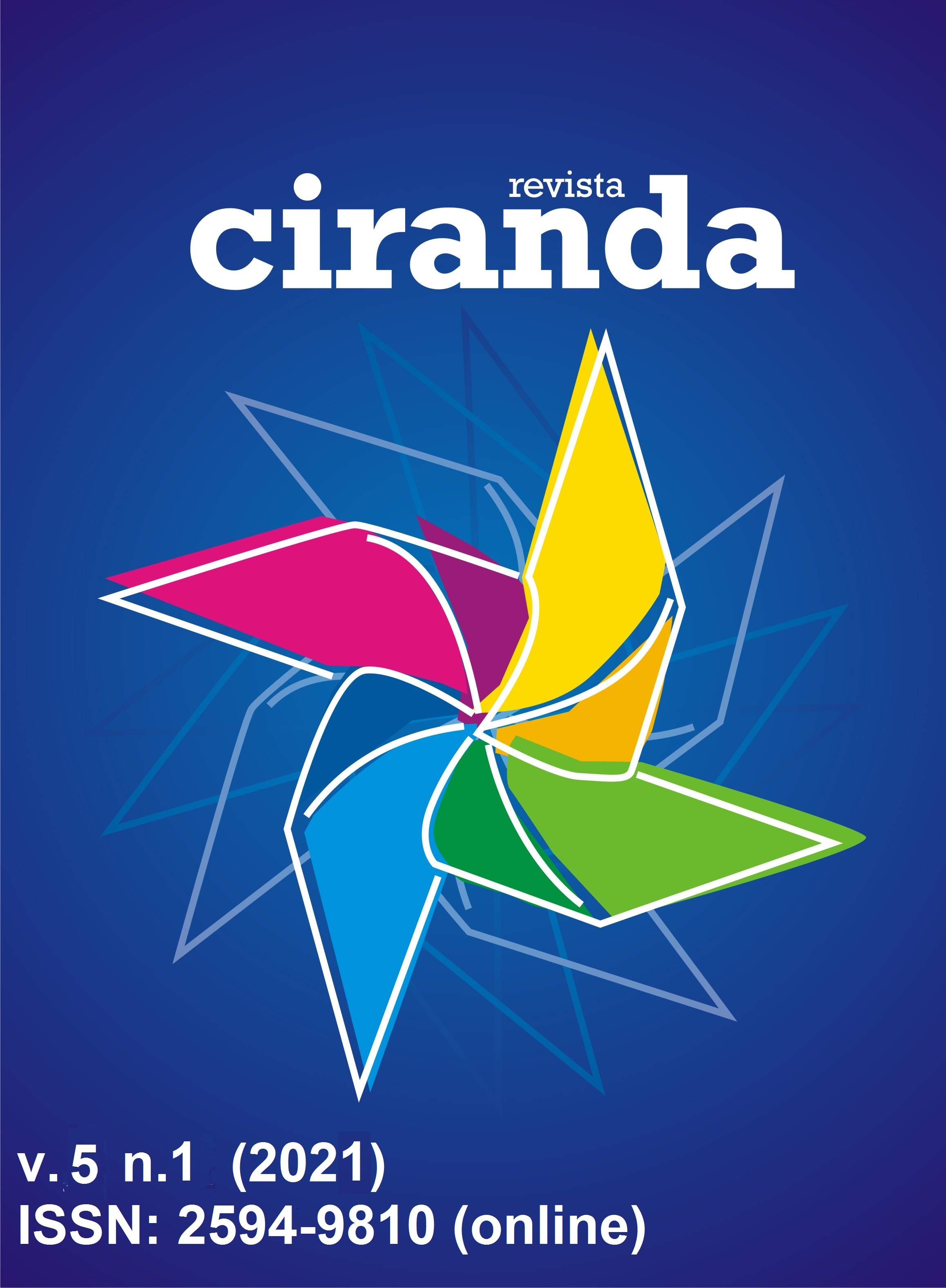PODCASTS COMO UM DESIGN ALTERNATIVO PARA O ENSINO DE PORTUGUÊS PARA REFUGIADOS NO BRASIL
DOI:
10.46551/259498102021010Keywords:
Language Teaching. Portuguese as a Host Language. Human Rights. Applied Linguistics. TransdisciplinarityAbstract
This research is inserted in the context of forced international migrations - a scenario in which
Brazil appears as one of the recipients (destination state) of countless refugees. It is a fact that,
in the last decade, Brazil has faced a representative growth in the migratory flow in its
territory - which has led several programs and projects to adapt to this context, helping in the
integration process and the reception of refugees. Linked to several difficulties, one of the
greatest barriers within this process is undoubtedly the language. In this context, the general
objective of this article is to study the context of the reception and linguistic integration of
refugees in Brazil; it becomes a specific objective to point out the contributions of podcasts in
the teaching and learning of Portuguese, taking into consideration the constitutive and
objective difference in the classrooms of Portuguese as a Host Language. Within this
scenario, however, it is emphasized that the language that hosts several times can silence, thus
making it difficult for refugees to territorialize in that physical and symbolic space - therefore,
this article is in the perspective of teaching those students who wish to learn the Brazilian
Portuguese language, without imposing new codes of language and culture. In this line of
reasoning, from transdisciplinarity, this work is in demand of new indenitary constructions
inherent to contemporary movements, justified by the potential to corroborate so that
professionals can have new perspectives to conduct future confrontations of the theme in
national territory. To this end, a bibliographical review is carried out in specialized texts,
legislation and international and national protocols
Downloads
References
BAUER, M. W; GASKEL, G. Pesquisa qualitativa com texto, imagem e som: um manual
prático I tradução de Pedrinho A. Guareschi. Petrópolis, RJ: Vozes, 2002.
DOUGHERTY, D. The maker movement, 2012a. Disponível em:
<<https://www.mitpressjournals.org/doi/pdf/10.1162/INOV_a_00135>>. Acesso: 11 mar.
DOUGHERTY, D. Learning by making: American kids should be building rockets and
robots, not taking standardized tests, 2012b. Disponível em:
<<https://slate.com/technology/2012/06/maker-faire-and-science-education-american-kidsshould-be-building-rockets-and-robots-not-taking-standardized-tests.html>>. Acesso em: 30
set. 2020.
EDUKAMAKER. Somos uma startup de robótica educacional. Disponível em:
<<http://edukamaker.com.br/quem-somos/>>. Acesso em: 30 set. 2020.
EDUKAMAKER. A Edukamaker, a cultura maker solucionando problemas! Disponível
em: <<https://www.instagram.com/edukamaker/>>. Acesso em: 30 set. 2020.
FOUCAULT, M. Microfísica do poder. Org e trad. Roberto Machado. 25ª.ed. Rio de
Janeiro: Edições Graal, 2008.
FOUCAULT, M. A arqueologia do saber: Tradução Luiz Felipe Baeta Neves. 8ª.ed. Rio de
Janeiro: Forense Universitária, 2014.
Downloads
Published
Versions
- 2021-03-16 (3)
- 2021-03-16 (2)
- 2021-03-08 (1)




.png)



